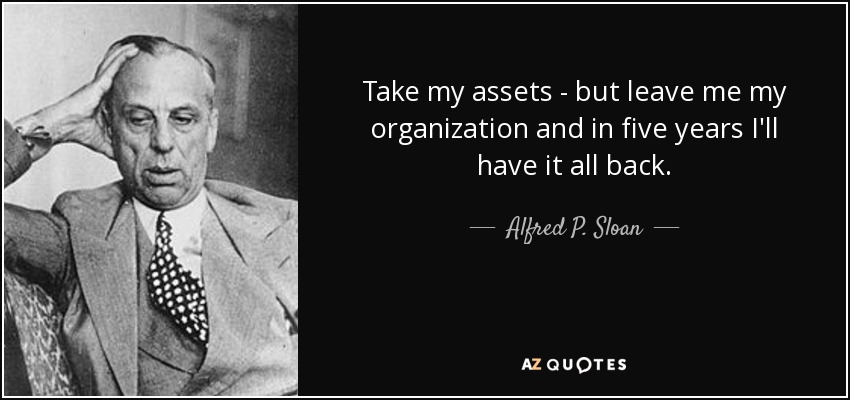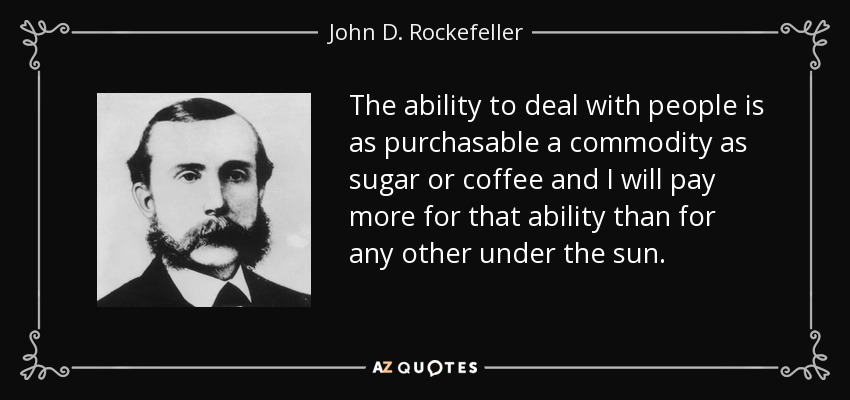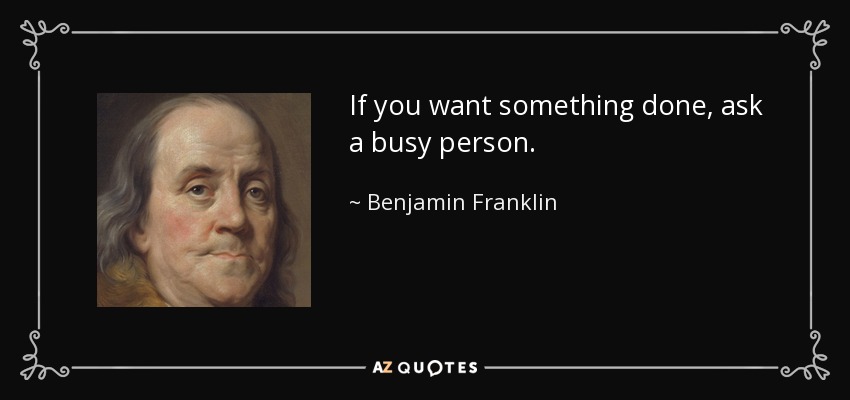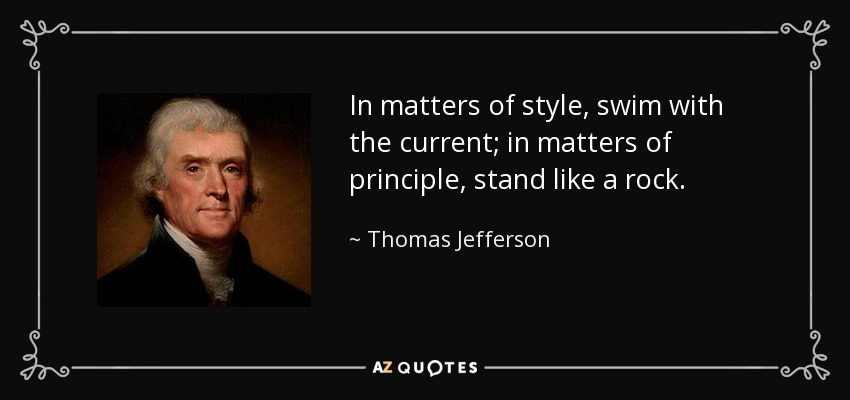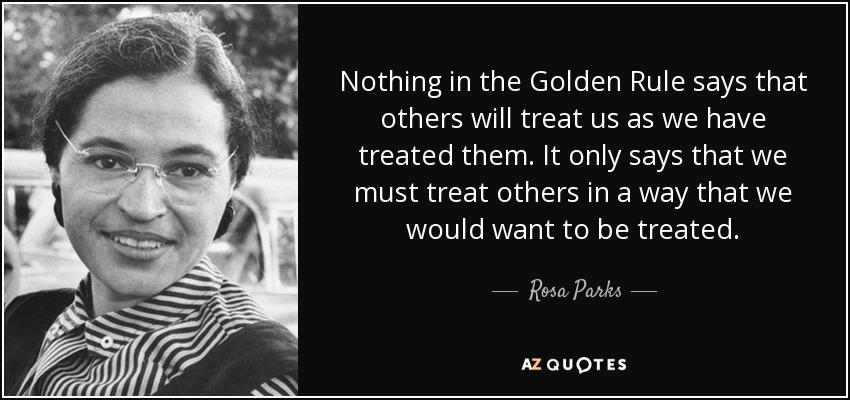Click here to return to Blog Post Intro

In 1984, Mary Kay Ash first published her book Mary Kay on People Management as a guide to using a woman’s touch to develop leaders. The book proved a rarity for its time in that it recognized the transformative impact women could have in creating vibrant and productive workplaces, and it quickly became a Wall Street Journal bestseller.
Mary Kay noted that most books on leadership available at the time were written by men—and for men. She goes on to say, “While women can gain considerable leadership know-how from men; by the same token, men can also learn much from women.”
One of my objectives in founding Mary Kay was to create a business atmosphere in which ‘thinking like a woman’ would not be a liability. In my Company, those special sensitivities and talents often labeled ‘women’s intuition’ would be nurtured—not stifled.
When the book was first published, her grandson Ryan Rogers was 7 years old. In 2003, two years after his grandmother’s death, Rogers accepted an award accorded her as a result of an academic study by Baylor University when she was named Greatest Female Entrepreneur in American History.
Last year, Rogers re-published the book. He explains that the book is something everyone at Mary Kay Incorporated refers to constantly. In 1963, when Mary Kay Ash began her “dream company,” she adopted the values that shaped her business. Over the course of 55 years, they’ve changed millions of lives for the better. In a 60 Minutes interview, Morley Safer asked her, “Don’t you think in a sense you’re using God?” To which Mary Kay replied, “I hope not. I sincerely hope not. I hope He’s using me instead.”
Golden Rule Leadership
The seeds you plant in the hearts and minds of others will be what you receive in return—110-fold. Only sow that which you wish to receive in return. Sow good, receive good!
One of Mary Kay’s favorite Bible verses comes from Matthew 7:12, “Do unto others as we would have others do unto us.” This message is just as meaningful today as ever.
Leaders at the top of the corporate ladder sometimes forget the mistreatment they had to endure before they got there. They show a lack of empathy for their associates. They fail to ask themselves an all-important question, “What would I do if I were the other person?”
While some managers try to forget problems they encountered early in their careers, Mary Kay made it a point to remember the difficulties she had along the way. It’s vital for a leader to empathize with the other person’s problem, and the best way to have a clear understanding is to have been there yourself!
Solving management problems by applying the Golden Rule means treating people fairly and according to merit, not merely using them for self-serving purposes.
Like a loving parent who listens to his child but does not always let him have his way, a leader will strive to treat everyone fairly and give rewards accordingly. Practicing the Golden Rule does not imply that a company is a part-time charitable institution. Nor should it be assumed that an employee can never be terminated or temporarily laid off. Sometimes a leader must perform unpleasant tasks that serve the best interest of the company.
You Build With People
Be a team player. Remember that being a success doesn’t always depend on you alone, but also on the work and achievement of your teammates. Your potential is limited if you try to accomplish everything by yourself.
When you look at any great business enterprise, you’ll find that it’s people who make it excel. A company is built with people—remove them, and the company’s ability to function effectively is seriously threatened.
Mary Kay explains, “As we grew, we were able to attract the best people to join our staff full-time, and we were always willing to pay top dollar for top talent. When it comes to hiring people, a company gets what it pays for. At Mary Kay, a lot of tender loving care is devoted to each person who joins us.”
The Invisible Sign
When infants cry, we pick them up and they soon stop crying. Mostly, they cry because they want attention—and they want to be loved. While our cries for love may not be as obvious, we cry for it all of our lives. In every culture in the world, people crave recognition and acceptance.
Every person is special! When Mary Kay met someone, she tried to imagine him or her wearing an invisible sign that says, “Make Me Feel Important!”
No matter how busy you are, you must take time to make the other person feel important!
It’s been said that we use only 10 percent of our God-given ability, and that the other 90 percent is never tapped.
Making people feel important is precisely what a leader is paid for—because making people feel important motivates them to do better work.
People generally do what you expect them to do. If you expect them to perform well, they will.
How does a leader make people feel important? First, by listening to them. People also feel important when they’re given responsibility. But responsibility without authority can destroy a person’s self-esteem.
You should frequently let your people know how much you appreciate them. Mary Kay goes first class across the board, and although it’s expensive, it’s worth it, because people are made to feel important. Just as a fine restaurant extends itself to make its customers feel special, Mary Kay’s company does everything they can to make people feel the same way.
Praise People to Success
Everyone wants to be appreciated, so if you appreciate someone, don’t keep it a secret.
Praise is the best way for a leader to motivate people. When was the last time you said to somebody at work, “You know, you’re really terrific! I admire the fine job you’re doing here at the office.” You should praise people whenever you can.
The power of positive motivation in a goal-oriented structure, such as ours cannot be overstated. This is what inspires Mary Kay’s Beauty Consultants to maximize their true potential. The company’s monthly Applause magazine’s main purpose, aside from sharing product news, is to give recognition.
It’s interesting to note how some people discount praise. In fact, one of Mary Kay’s male executives often said, “Praise is great, but I don’t personally need it. My ego doesn’t need massaging—save it for somebody else.” Do you believe that?
As a leader, you must recognize that everyone needs praise. But it must be given sincerely.
The Art of Listening
Tenacity and perseverance are essential qualities for success in business. But there is much more to being successful. Real strength entails being considerate and supportive of people’s feelings.
While listening may be the most undervalued of all the communication skills, good people managers are likely to listen more than they speak.
Many problems you will hear don’t require you to offer solutions. You can solve most problems by just listening and letting the involved party do the talking. If you listen long enough, the person will generally come up with an adequate solution.
Sometimes listening by itself may not be enough; some people must be prodded if you are to find out what they’re thinking. Sometimes a thin line separates invasion of privacy from concern and interest. Just how far a manager should go in discussing an employee’s personal problems is something only the individuals involved can determine. Of course, you must use discretion at all times and never pry.
If you do ask questions and are subtle about it, you are expressing a genuine interest in what the other person has to say.
It’s very important to encourage people to give you feedback, but when you do so, you must abide by three rules:
- Listen to what they say.
- Acknowledge all correspondence sent to you.
- Give proper recognition for all valid suggestions.
Sandwich Every Bit of Criticism Between Two Heavy Layers of Praise
We can praise people to success, but we cannot criticize them to success.
Mary Kay didn’t think it was ever appropriate for a manager to criticize an individual. Criticism should be directed at what’s wrong—not at who’s wrong!
It’s okay for a manager to develop a relationship with his or her employees. At the same time, managers must be strong and speak straightforwardly. This calls for being simultaneously tender and tough. In other words, you’ve got to maintain your manager role, but you must also have empathy. A fine line exists between being too buddy-buddy and compromising your supervisory status.
Never giving criticism without praise was a strict rule for Mary Kay. No matter what you are criticizing, you must find something good to say—both before and after. This is what’s known as the “sandwich technique.”
It’s inexcusable for a manager to chastise someone in the presence of others. Not only does such action create bitter resentment, but everyone present becomes embarrassed and insecure.
Be a Follow-Through Person
Be the kind of person who can always be counted on to do what you say you’ll do.
Ideas are a dime a dozen, but the men and women who implement them are priceless.
When you dictate even the most thoughtful and logical concept to a person, this idea is still a command. When you ask her to contribute to its inception, that very same idea becomes a “personal crusade.”
A manager should never make a promise that something will be done unless he is absolutely certain it will be done! Furthermore, a manager should never make a commitment unless he has complete authority to do so.
Correspondence is an area in which people often fail to follow through. People become irritated, and justly so, when they receive no response to their messages. So, if you’re looking for a good way not to influence people, leave your mail unanswered.
Write down everything that requires follow-through. Don’t trust it to memory. If you don’t write it down, you’ll never get around to doing even the most well-intended task.
As a people manager, you have a constant selling job. You must sell your ideas in order to gain the support of others with whom you work. With this in mind, you must prepare in advance for every meeting. Doing your homework for a meeting with a single person is just as important as it is for a staff meeting, a board of directors’ meeting, or a convention with an audience of thousands.
Somehow, busy people always seem to have the capacity to take on one more project.
It takes a great deal of time management skill for a woman to wear the many hats of wife, mother, homemaker, chauffer, cook, psychologist, et cetera, and put in long hours of volunteer work for the community. A woman who can accomplish so much must practice follow-through. And although her resume may show that she has never worked for renumeration, in my book, her background qualifies her for many positions in the business world.
The real achievers in this world are those who follow through in all things, big and small.
Enthusiasm…Moves Mountains!
Decide today that when anyone comes to you with a negative thought, you are going to replace it with a positive one.
Nothing great is ever achieved without enthusiasm. Mary Kay even has a Company song entitled “I’ve Got That Mary Kay Enthusiasm.” Singing unites people. If someone is depressed, singing will often bring her out of it.
If we are honest, we would admit to having days we simply have to give ourselves a little pep talk. Mary Kay often told her Independent Beauty Consultants, “You’ve got to fake it until you make it!” That is, act enthusiastic, and you will become enthusiastic.
As a manager, when you’re not feeling up to par, you’ve simply got to work harder because your attitude can affect the enthusiasm of your people. Enthusiasm is not just contagious—it spreads like wildfire.
Your moods—good and bad—will inevitably be reflected by those who work with you. It’s up to you to control those moods and not let them control you.
It’s interesting to note that the word enthusiasm comes from a Greek origin meaning “God within.” Similarly, enthusiasm must begin within you, when you are consumed with enthusiasm, those around you cannot help but respond in kind.
The Speed of the Leader is the Speed of the Gang
How you live your life—the image you project and the example you set—speaks so loudly that if it’s not in harmony with what you are telling people, what you’re saying will just never be believed.
Nothing takes the place of a good, working leader. Unfortunately, many people who work hard to be promoted to a leadership position develop acute “executivitis” once they’re promoted.
People frequently mimic a leader’s work habits and self-discipline, for better or worse.
Leaders often hear “things are different now from what they were when you were out in the field.” Naturally, things do change in time, but the basics of every business remain constant. There’s nothing quite so inspiring to a staff as a leader who demonstrates that she or he still has what it takes.
There’s a great deal of responsibility involved with being a leader. And the higher your position, the more attention you must devote to projecting an appropriate image. You are always in the spotlight, and you must act accordingly. Lead by example, and soon your people will do as you do.
People Will Support That Which They Help to Create
People involved in the decision-making process are more likely to accept change and support new ideas. Involving them means soliciting their advice, listening to their commitments and inviting them to participate in implementation.
Everyone has an ego. And like it or not, every leader must consider this fact before making any decision involving the people who work for him.
When change is necessary, the way in which you present your case can make a world of difference in the kind of reaction that results. By involving others in the decision—by listening—you can not only avoid bruising egos, you can raise their levels of self-esteem as well.
However, there is a downside to personnel involvement. The more people who are consulted, the greater the chance that confidential information may be disseminated outside your organization. Increasing the number of those involved is also more time-consuming, so implementation of the change may be delayed. Despite these risks, there is an enormous trade-off in high morale.
If you want the full support of your people, you must get them into the act—the sooner, the better.
Resisting change simply because it’s new and different seems to be a natural human response. We become complacent all too easily, and thus change requires a conscious effort.
Perhaps the best way to introduce change in a business is to keep one foot firmly planted on fundamentals and the other foot searching for better ways to streamline operations.
An Open-Door Philosophy
Experience has taught me that people will never follow anyone else unless they feel that a leader really cares about them and their problems.

Doors open in two directions. Open doors allow us the opportunity to truly know our people.
Mary Kay is a “people-to-people,” not an “office-to-title,” company. They facilitate a friendly, relaxed atmosphere by addressing each other by first names.
While it sounds hard to believe, some managers intentionally maintain a “closed-door” philosophy. In one case, the closed doors eventually forced the closing of what formerly had been a prosperous business.
An open-door philosophy is all about “like coming into the sunshine.” Mary Kay wants everyone who comes in contact with the company to feel their warmth.
Help Other People Get What They Want—and You’ll Get What You Want
Think in terms of what’s good for the other person, and success will seek you out.
The most important justification for being in business is service to others. As leaders, our first concern must be helping others. And it follows that if your attention is directed toward helping others, you will be rewarded.
Mary Kay often autographs one-dollar bills as awards and next to her name, she writes “Matthew 25:14-30,” which is the parable of the talents. It tells us to use and increase whatever God has given us, and that when we do, we shall be given more.
“Nice guys finish last” is a familiar adage immortalized by the late baseball manager Leo Durocher, which implies a correlation between being nice and being a loser. Consider the managers portrayed in movies such as 9 to 5, Silkwood, and Norma Rae. Loudly and clearly the message comes across: Success and decency don’t mix!
A leader who mistreats people will end up managing a workforce of unmotivated, unhappy, negative people. And as their leader, he just isn’t going to make it!
It’s important to realize that being a “nice guy” doesn’t mean that a leader is nice because he or she says yes to everything. A good leader must be able to say no when that’s the only answer. But he should be tender as well as tough.
Within well-operated, growing corporations, good leaders can only prove their worth by helping others. In this sense, a leader’s success is reflected in the success of his or her people.
Scripture reads, “To whom much is given, from him much shall be required.”
Stick to Your Principles
Nothing can tear leaders down faster than being dishonest with their people. You must earn the respect and confidence and good will of others, striving to build up the lives of those around you, and you can do it only with complete honesty with yourself and with them.
In business, everything is subject to change—people, products, buildings, machinery, everything—except principles.
Good leaders should be examples to others. Mary Kay points out, “Our people know that we are sincere when we tell them that our priorities are ‘God first, family second and career third.’ Yes, our leadership team does consist of hardworking, career-oriented people, but over the years we’ve demonstrated that God and family take priority over careers. Since our people represent all faiths, I never try to impose my personal religious beliefs on others. I do, however, let it be known that God plays a very important part in my life.”
Leaders must respect the sanctity of family.
A Matter of Pride
When you feel good because you look good, people respond to you positively. While some contend that you feel good because people treat you well, I believe that feeling good about yourself stimulates a positive reaction toward you.
There’s an inner sense of pride from knowing you’ve done a first-rate job. A leader should strive to instill a sense of pride in people, no matter what kind of work they do.
All of Mary Kay’s company activities are in the pursuit of excellence. No matter what they achieve, they are never completely satisfied; they’re always searching for ways to improve.
When people strive for excellence as a team, everyone’s level of performance is elevated. No one wants to let the others down. Everyone wants to contribute.
The soothsayers prophesied that Mary Kay was doomed to failure. However, she was determined to prove them wrong. The odds were against her, but she did know four things for certain:
- People will support that which they help to create.
- In this great country, there is no limit to what an individual can accomplish.
- If given the opportunity, women are capable of superior performance.
- She was willing to work long, hard hours to implement my convictions.
There are more opportunities today, especially for women, than at any other time in history. Opportunities have always and will always be around. You simply have to take advantage of them.
You Can’t Rest on Your Laurels
If you do the things you ought to do when you ought to do them, then someday you can do the things you want to do when you want to do them.
In Lewis Carroll’s Through the Looking Glass, the Red Queen advises Alice: “Now, here, you see, it takes all the running you can do, to keep in the same place. If you want to get somewhere else, you must run twice as fast…”
At Mary Kay Inc., they express the thought this way: “You can’t rest on your laurels; for nothing wilts faster than a laurel rested upon.”
In a career, you either go forward or backward, but you don’t stand still. Successful people in every field subscribe to a lifetime self-improvement program.
Mary Kay’s theory was always, “If I have an idea and you have an idea—then we each have two! But if I keep mine and you keep yours, we each still have only one apiece. Free exchange provides an ideal climate for learning and growing.”
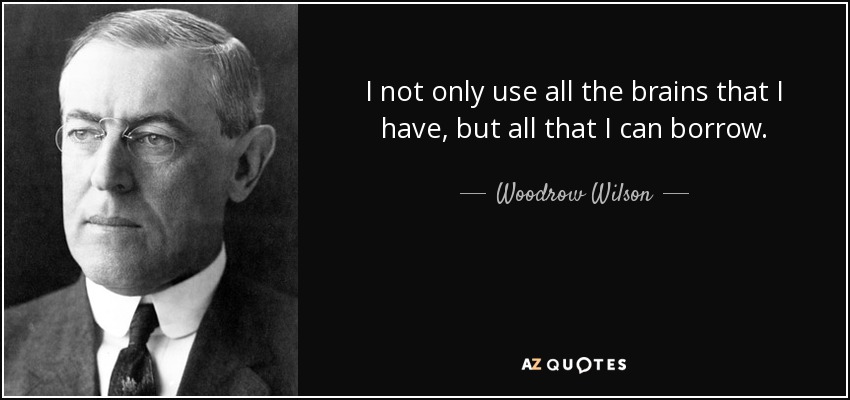
Be a Risk Taker
For every failure, there’s an alternative course of action. You just have to find it. When you come to a roadblock, take a detour.
Unquestionably, being at risk was the major inspiration for also being innovative, hardworking and highly motivated. People fail forward to success. A risk-taking environment starts at the top of a corporation.
It’s vital for people to be free to take risks and to be permitted mistakes along the way. This is what nourishes personal growth and creativity.
Yes, you will fail, but you need to analyze what happened and learn from that failure. Life is a series of many attempts and many failures before we realize success. The important thing is to keep on trying.
Someone once remarked to Thomas Edison that he failed 25,000 times while experimenting with the storage battery. “No, I didn’t fail,” the brilliant inventor replied, “I discovered 24,999 ways that the storage battery doesn’t work.”
Work and Enjoy It
Make every day count. Make every hour count. Make every minute count. And don’t stop until you have exercised your full potential, realizing your impossible dream and fulfilling your total destiny to become the person that you, and only you, are capable of being.
The more people enjoy their work, the more energy they have to put into it! Furthermore, we generally perform or work better if we enjoy it.
Let’s face it, all of us have to do some unpleasant tasks in our work. Try putting the most unpleasant tasks at the top of your list of things that must be done each day. Once they are out of the way, the rest of the day goes much more smoothly.
Mary Kay always made the best of whatever work she had to do and enjoyed it. There’s no question that people perform better doing work they enjoy. Every leader should therefore strive to create an atmosphere in which his people can enjoy their work.
A good leader tries to match the person to the appropriate job. We are all different. A good leader will recognize those differences and treat each person as an individual.
Nothing Happens Until Somebody Sells Something
Did you ever stop to think how many people have jobs because you are selling? When a sale is professionally made, everybody wins—the salesperson, the customer, the manufacturer, the truck driver, the freight company! Everyone wins.
At a large manufacturing company’s banquet, the CEO delivered a truly wonderful message: “It’s you salespeople gathered here tonight who are responsible for this company’s record performance during this past year. It’s true that our company’s plant has the latest state-of-the-art facilities, and we’ve got an outstanding backup system to serve you. But we all know very well that nothing happens until somebody sells something. I’m proud to be associated with such fine men and women. I think you’re the finest sales organization in the world.”
Now, that’s an interesting message to deliver to any sales organization.
Never Hide Behind Policy or Pomposity
If you treat people right, they will work more efficiently and the profits will come in. The same advice applies to your customers. Being successful in business isn’t a matter of taking advantage of people. On the contrary, it’s a matter of giving them so much value, care and attention; they would feel guilty even thinking about doing business with somebody else.
It’s frustrating to be told that “it’s against company policy.” But when you question the logic behind the policy and the manager or salesperson simply repeats, “It’s against company policy,” then you must assume that there is another reason for the refrain: That person doesn’t know the answer.
Never state a company policy without explaining the reason behind it. Don’t hide behind a policy!
If a customer doesn’t like a company policy, he can take his business elsewhere. But terminating one’s employment out of frustration is too extreme and costly a reaction. Usually, an employee doesn’t leave. He keeps his job, but his bitterness and resentment remain, thus undermining a healthy, positive employer-employee relationship.
Whenever possible, company guidelines and policies should be stated in writing so that there can be no misunderstanding of the company’s position on pertinent issues.
Provided they are given rational reasons, people respect company policies that are fair. In fact, well-thought-out company policies often make people feel secure because they know in advance what to expect.
In some giant industries, huge bureaucratic structures can delay changes in policy. Every company is likely to have one or more policies that, in time, have become discriminatory or obsolete.
“This is company policy because…” If you can’t finish the sentence with a satisfactory reason, perhaps the time has come to modify or do away with the policy.
When people move up the corporate ladder, success sometimes go to their heads. Eventually, their pomposity causes them to slide back down that ladder of success. Successful people who feel secure about themselves—who they are, where their talents lie, what their limitations are—retain a sense of humility that enables them to view both the responsibilities of their positions and the demands on their time in balanced perspective. Those who can’t handle success put on airs to cover up their inadequacies.
Every manager must realize that his success depends on a total team effort: people working together to reach the same objectives.
Mary Kay explains, “It’s not that I disapprove of executive dining rooms, executive bathrooms, or private phones in managers’ offices. It’s just that I do not wish to promote such superficial amenities. I don’t believe in promoting a privileged class. Such an environment breeds pomposity.”
Whenever possible, use “we” instead of “I” when discussing your team with others.
Finally, always remember where you came from, and bear in mind that your future depends upon your ability to work well with people.
Be a Problem Solver
You should let possibilities command the leadership of your life, remembering that there is something wrong with every idea. Just correct the problems. Never let a problem be an excuse for stopping, and don’t turn your problem into an excuse.
No matter what business you’re in, most problems are people-related. Leaders should spend 45 percent of their time on new people entering the business, 45 percent on their top performing people and the remaining 10 percent on those who are on their way out of the business. It’s the bottom 10 percent who account for the majority of the problems and demand most of a leader’s time.
A leader must recognize when home problems cause work problems. Often it’s personal crises, such as those involving marriage, children, aging parents, family finances and health.
One way Mary Kay enlists the support of spouses is by inviting them to attend Company-sponsored events. They’ve discovered that the more a spouse understands the nature of this business, the more supportive he will be.
Without a spouse’s support, people in any business can operate under handicaps that might otherwise drain even the strongest among us.
As a leader, you must be prepared to deal with a wide range of problems. Some will be real, some will be imagined, but most will be a combination of both. Listen to them all, and keep an open mind. Finally—and perhaps most importantly—remember the old adage, “If it ain’t broke, don’t fix it.”
Less Stress
The purpose of work is to provide happiness and security for your loved ones and you. Your happiness and theirs are intertwined; what’s good for you is ultimately good for them, too. To stay healthy, you must eat nutritious foods, exercise and pursue activities that reduce stress in your life. And it can very well mean more relaxation and even, on occasion, pampering yourself.
A good leader minimizes stress for people. Medical experts claim that severe stress can cause serious illnesses, such as heart disease or cancer.
Please note that you shouldn’t “eliminate”; some stress is desirable—even necessary. To paraphrase John Barrymore, if you ever lose the butterflies during a performance, you’ve lost your audience.
Stress can be considered beneficial whenever a sense of urgency results in a superior performance.
A friendly, productive atmosphere begins with you, the leader. Your moods directly affect the moods of those who report to you.
People feel more secure at work when they’re supervised by a decisive leader. A leader who cannot confront a problem and make a decision causes stress among his people. People want strong leadership—leaders who give them a sense of direction. They feel comfortable with a leader who lets them know exactly what he wants and what’s expected of them.
A leader should give clear, concise assignments. People become frustrated when they’re merely told, “Do something about so-and-so.”
An enormous amount of stress is endured by those who are promoted up the corporate ladder too quickly to positions they are not yet ready to assume.
Mary Kay always worked hard to create a less stressful atmosphere for people, and they take action to bring it about. They do this by letting everyone know that every leader is available when someone has a problem. Furthermore, Mary Kay encourages any troubled employee to “talk it out.” Left unattended, problems only intensify.
Develop People from Within
Leaders teach. They motivate. They care. For them, life is never lonely at the top. Leaders make sure that the way to success is always broad enough and straight enough for others to follow in their footsteps.
Mary Kay Incorporated believes in promoting people from within the Company. An outsider is normally not brought in if they already have a person who is qualified.
Only after all employee applicants have been interviewed and given careful consideration do they go outside the Company to fill the position. Such opportunities for individual growth create a healthy climate that encourages employees to think in terms of a long career with the Company.
They often cross-train people so that they are capable of doing several jobs—not one. Thus, it is easier for someone to be already qualified in several areas.
For a leader to be promoted, there should be a backup person to replace her. Every leader realizes that her advancement depends in part upon how well she trains others to take over her present position.
A recent study of the best-managed companies in America shows that they are structured in a way that guarantees the best people will be promoted to top levels of management. It is a sign of weakness when a company fails to develop a leadership team from within. Nothing prepares one better for the responsibilities of leadership than on-the-job training.
Good people need opportunities and challenges. That’s what causes excitement and keeps a company humming at a fast pace.
Live by the Golden Rule on and off the Job
The Golden Rule is not a spigot to be turned off and on according to convenience; you should abide by it in your interactions with everyone. To treat people according to your whims on a particular day is not what this beautiful philosophy is all about.
If compassion and fair dealing are good for business, why not practice those same excellent qualities away from the office.
Keeping your priorities as God first, family second, and career third keeps life in harmony.
Remember that invisible sign: Everyone needs to feel important. And no one counts more than your loved ones!
Everything you do to become a good leader is also good advice when you’re away from the job. For instance, “the speed of the leader is the speed of the gang” is a sentiment that is also applicable in the home.
We’ve discussed stress in the workplace, but it’s by no means confined to the office or shop. Stress is all around us, and most of it can be reduced.
Too often we shut our eyes to problems, hoping they will disappear. Instead of bottling up feelings, healthy families express them, which in itself can reduce stress.
You can’t fake living by the Golden Rule because people sense insincerity immediately. You must earn the unconditional respect of the people you work with.
Don’t be so deeply involved in your work that you neglect those who are closest to you—your family and friends.
Mary Kay closes by saying, “Finally, I would like to wish for each one of you a full life—one that enriches the lives of everyone around you.”

